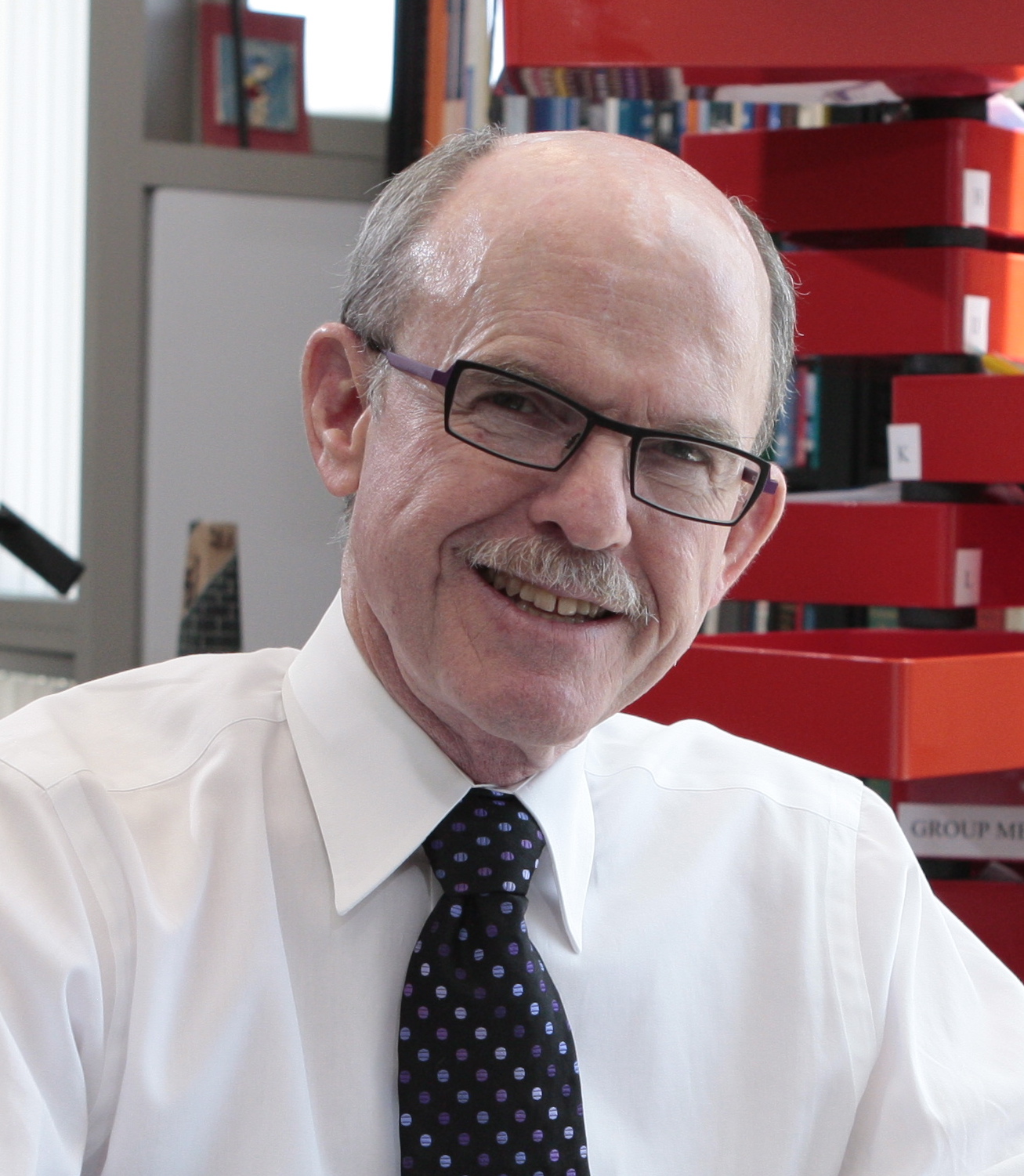|
K. N. Houk was born in Nashville, Tennessee, on February 27, 1943. He
received his A.B. (1964), M.S. (1966), and Ph.D. (1968) degrees at
Harvard, working with R. A. Olofson as an undergraduate and R. B. Woodward
as a graduate student in the area of experimental tests of orbital
symmetry selection rules. In 1968, he joined the faculty at Louisiana
State University, becoming Professor in 1976. In 1980, he moved to the
University of Pittsburgh, and in 1986, he moved to UCLA, becoming a
Distinguished Professor in 1987. From 1988-1990, he was Director of the
Chemistry Division of the National Science Foundation. He was Chairman of
the UCLA Department of Chemistry and Biochemistry from 1991-1994.
Professor Houk received the Akron American Chemical Society (ACS)
Section Award in 1984. He was awarded the Arthur C. Cope Scholar Award of
the ACS in 1988, the James Flack Norris Award in Physical Organic
Chemistry of the ACS in 1991, the Schrodinger Medal of the World
Association of Theoretically Oriented Chemists (WATOC) in 1998, the Tolman
Medal of the Southern California Section of the ACS in 1999, the ACS Award
for Computers in Chemical and Pharmaceutical Sciences in 2003, and the
Arthur C. Cope Award of the ACS in 2009. He
was awarded the Robert Robinson Award of the Royal Society of Chemistry in
2012 and the UCLA Glenn T. Seaborg Medal in 2013.
He was a Camille and Henry Dreyfus Teacher Scholar, a Fellow of the
Alfred P. Sloan Foundation, the von Humboldt Foundation U.S. Senior
Scientist in 1981, an Erskine Fellow in New Zealand in 1993, the Lady
Davis Fellow at the Technion in Haifa, Israel in 2000, and a JSPS Fellow
in Japan in 2001. He was elected to the American Academy of Arts and
Sciences in 2002 and the International Academy of Quantum Molecular
Sciences in 2003. He is a Fellow of the AAAS, the ACS, the WATOC, and the Royal Society of Chemistry. At
UCLA, he was named Saul Winstein Chair in Organic Chemistry in 2009, and
he was elected a member of the National Academy of Sciences in 2010.
Houk received the LSU Distinguished Research Master Award in 1968,
was named the Faculty Research Lecturer at UCLA for 1998, received the
Bruylants Chair from the University of Louvain-la-Neuve in Belgium in
1998, and was awarded an honorary doctorate (Dr. rer. nat. h. c.) from the
University of Essen in Germany in 1999. He was also named an Honorary Professor at the University of Queensland in Australia in 2014.
Houk has served on the Advisory Boards of the Chemistry Division of the
National Science Foundation, the ACS Petroleum Research Fund, and a
variety of journals, including Accounts of Chemical Research, the Journal
of the American Chemical Society, the Journal of Organic Chemistry,
Chemical and Engineering News, the Journal of Computational Chemistry, the
Journal of Chemical Theory and Computation, Chemistry - A European
Journal, and Topics in Current Chemistry. He has been a member of the NIH
Medicinal Chemistry Study Section and the NRC Board of Chemical Sciences
and Technology. He was Chair of the Chemistry Section of the AAAS in
2000-2003. He served as Chair of the NIH Synthesis and Biological
Chemistry-A Study Section in 2008, and was a Senior Editor of Accounts of
Chemical Research from 2006-2015. He was the Director of the UCLA Chemistry-Biology Interface
Training Program, an NIH-supported training grant, and a member of the
UCLA Molecular Biology Institute.
Professor Houk is an authority on theoretical and computational
organic chemistry. His group develops rules to understand
reactivity, computationally models complex organic reactions, and
experimentally tests the predictions of theory. He collaborates
prodigiously with chemists all over the world. Among current
interests are the theoretical investigations and design of
enzyme-catalyzed reactions, the quantitative modeling of asymmetric
reactions used in synthesis, the mechanisms and dynamics of
pericyclic reactions and competing diradical processes, and the
molecular dynamics and reactions of hemicarcerands and other
host-guest complexes. He has published nearly 1100 articles in
refereed journals and is among the 100 most-cited chemists.
|



